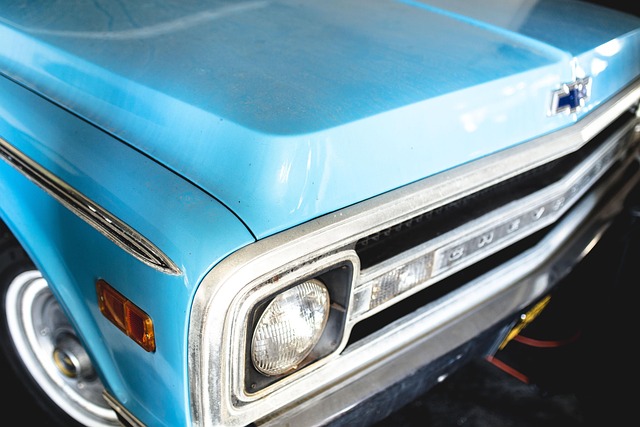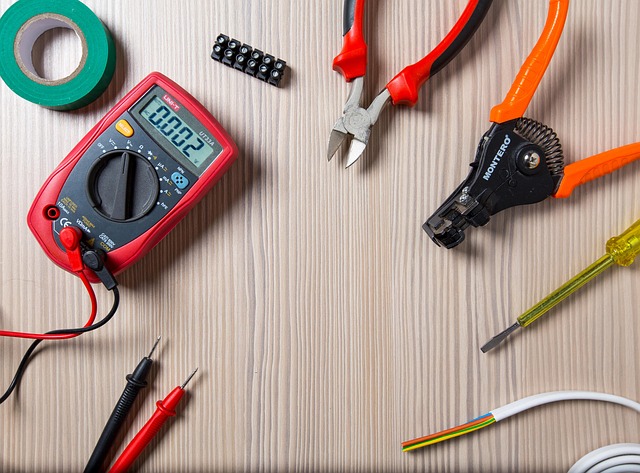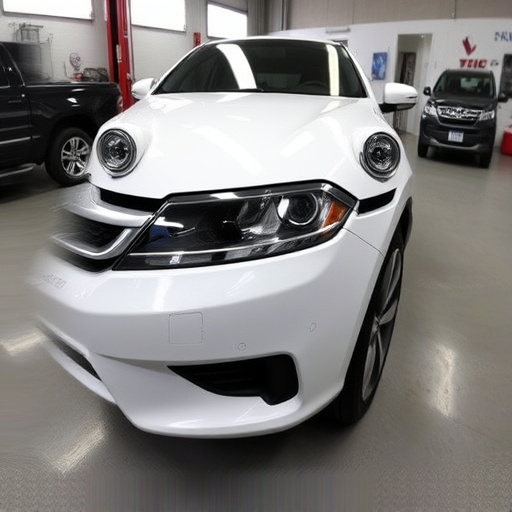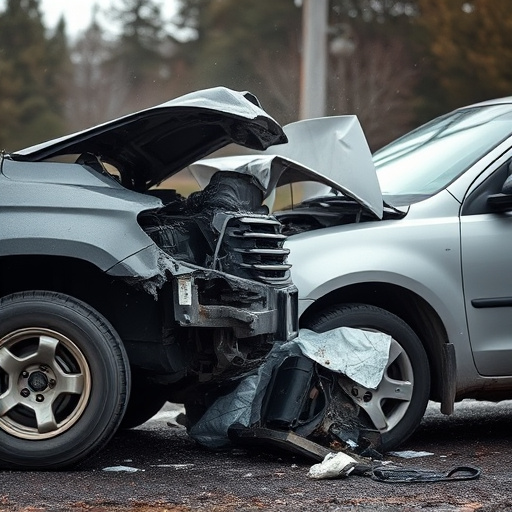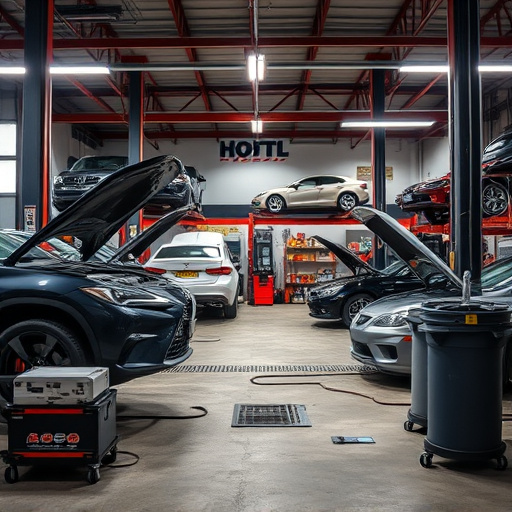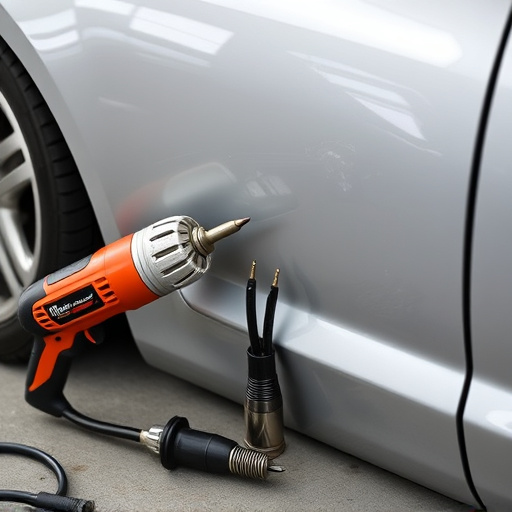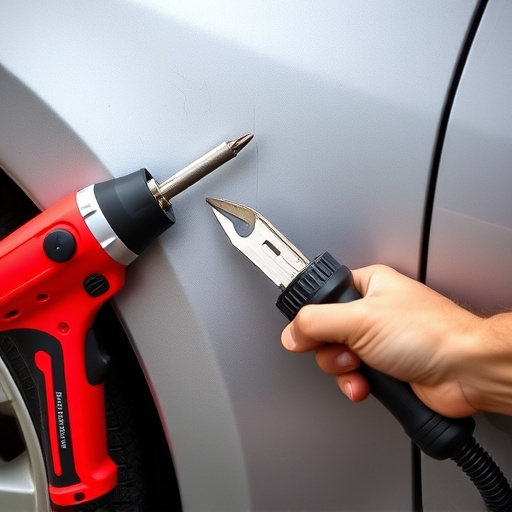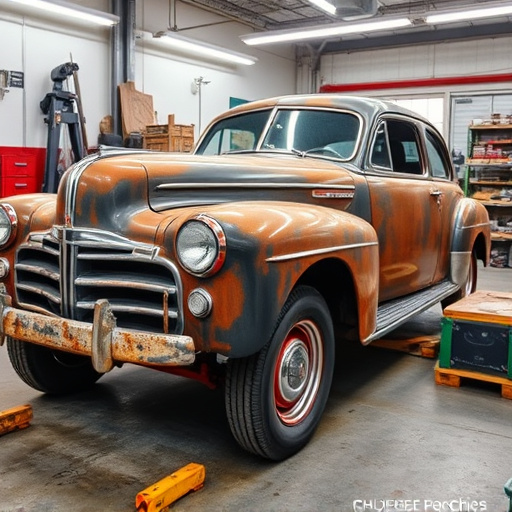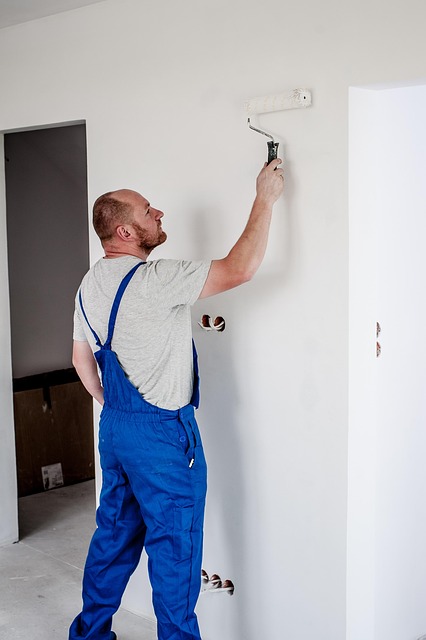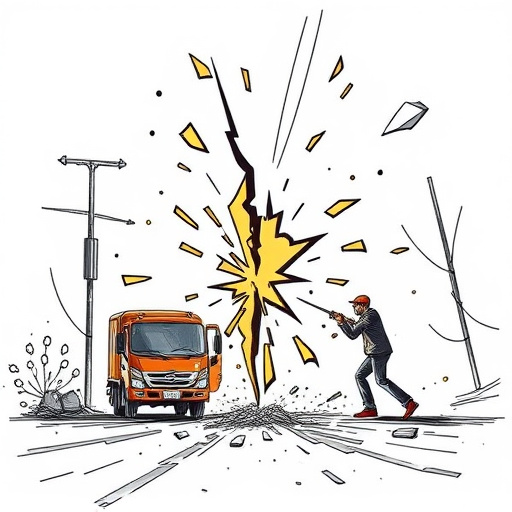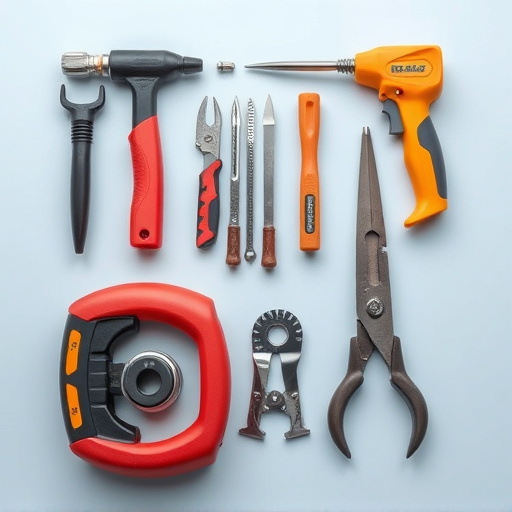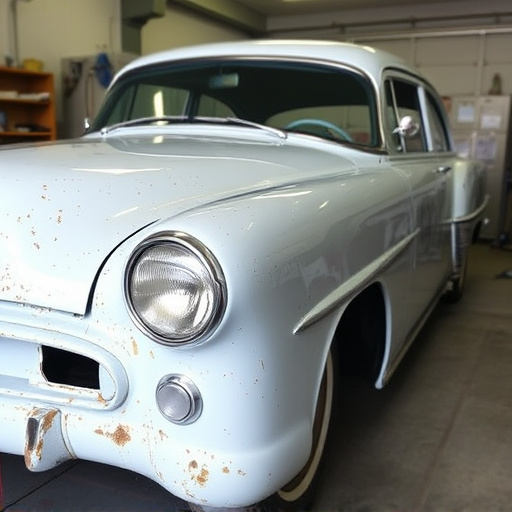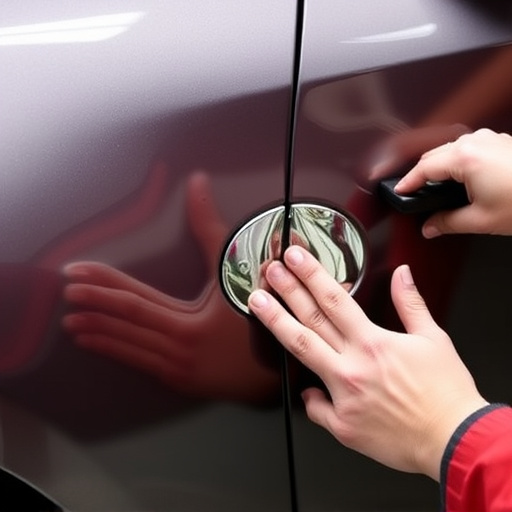Meticulous surface preparation with degreasing and pressure washing prevents post-installation rust. Use auto body etch primer for added protection against moisture. Select durable materials and use rust-inhibiting adhesives and coatings during full panel replacement. Establish regular maintenance routines including monthly washing, waxing, and inspections to prevent water damage.
Looking to replace your car’s full panel and prevent rust? This comprehensive guide details proven strategies, ensuring a long-lasting, rust-free finish. We’ll walk you through preparing the surface before replacement, selecting materials that resist corrosion, and implementing essential post-installation maintenance routines. Follow these steps, and your vehicle will be protected against rust, extending its lifespan and preserving its aesthetic appeal.
- Prepare Surface Thoroughly Before Replacement
- Select Appropriate Materials for Longevity
- Implement Post-Installation Maintenance Routines
Prepare Surface Thoroughly Before Replacement
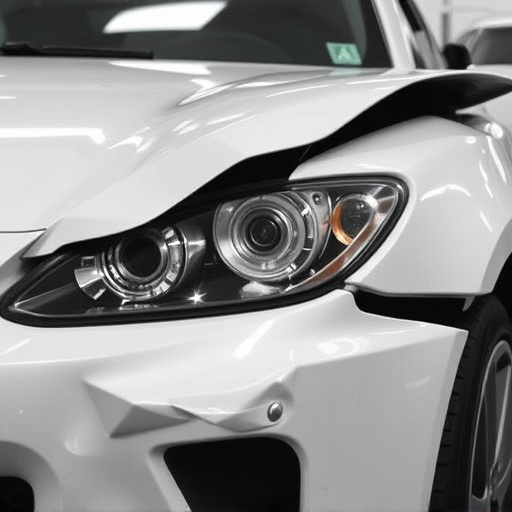
Before initiating a full panel replacement, ensuring the surface is properly prepared is paramount to prevent rust formation post-installation. Begin by thoroughly cleaning the affected area using a suitable degreasing agent and a pressure washer or brush to remove any dirt, grease, or debris. This step is crucial as it prepares the metal for priming and painting, which are essential layers that protect against corrosion.
Additionally, inspect the surface for existing rust spots or flaking paint. If found, gently scrape away the affected material using a wire brush to create a clean, roughened surface. Applying an auto body etch primer before replacing the panel further enhances protection by creating a barrier that seals out moisture and prevents future rust development, thereby extending the lifespan of your car damage repair and automotive restoration work.
Select Appropriate Materials for Longevity
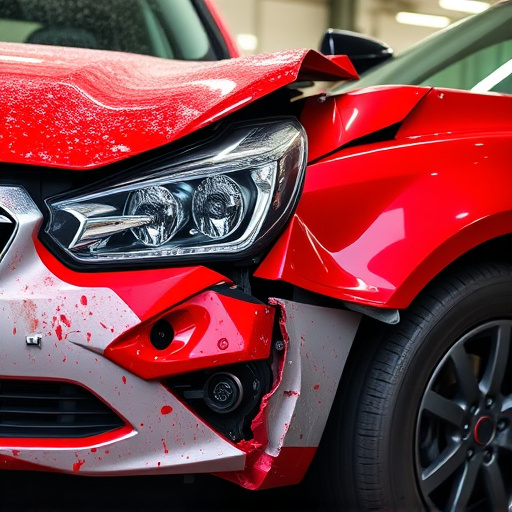
When undertaking a full panel replacement, selecting materials that offer durability and corrosion resistance is key to preventing rust. Opt for high-quality steel or aluminium sheets designed specifically for automotive applications. These materials are engineered to withstand environmental factors, including moisture and UV exposure, which are common causes of rust during car paint services or auto repair shop work.
Using the right adhesives and coatings further enhances protection. Modern car bodywork services often recommend using rust-inhibiting primers and paints that create a robust barrier against moisture intrusion. This multi-layered approach ensures longevity, especially in regions with harsh climates, ultimately reducing the risk of corrosion during and after the full panel replacement process.
Implement Post-Installation Maintenance Routines
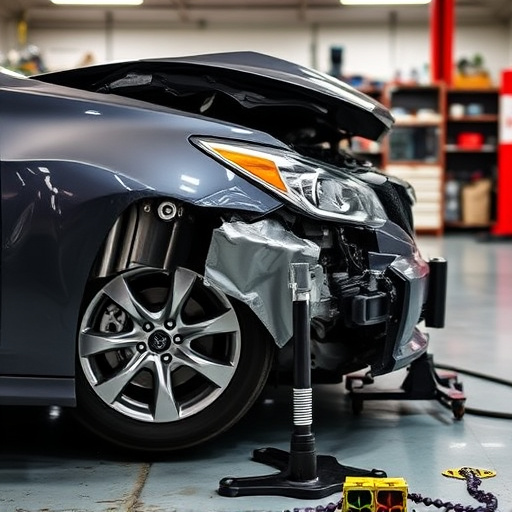
After completing a full panel replacement on your vehicle, establishing post-installation maintenance routines is vital for preserving the new work and preventing rust. This includes regular washing and waxing to protect the paint job from environmental contaminants and UV rays, which can weaken the finish over time. At least once every few months, inspect the repaired area for any signs of water damage or moisture intrusion, as these can be breeding grounds for rust. Addressing these issues promptly with appropriate sealing agents is essential to maintain the integrity of your vehicle’s exterior.
For a Mercedes-Benz collision repair or any vehicle collision repair, understanding that prevention is key is crucial. The process of car dent removal requires skill and precision, but it’s only part of the puzzle. By incorporating these maintenance practices, you can ensure the longevity of your full panel replacement, keeping your vehicle looking its best and preventing costly repairs down the line—a benefit not just for the aesthetics of a smooth, pristine finish, but also for the overall health of your investment in mercedes benz collision repair services.
Preventing rust during a full panel replacement requires meticulous preparation, smart material choices, and ongoing maintenance. By thoroughly cleaning and preparing the surface before installation, selecting corrosion-resistant materials, and establishing regular post-installation care routines, you can ensure your replaced panels withstand the elements for years to come, maintaining the structural integrity and aesthetic appeal of your space.
